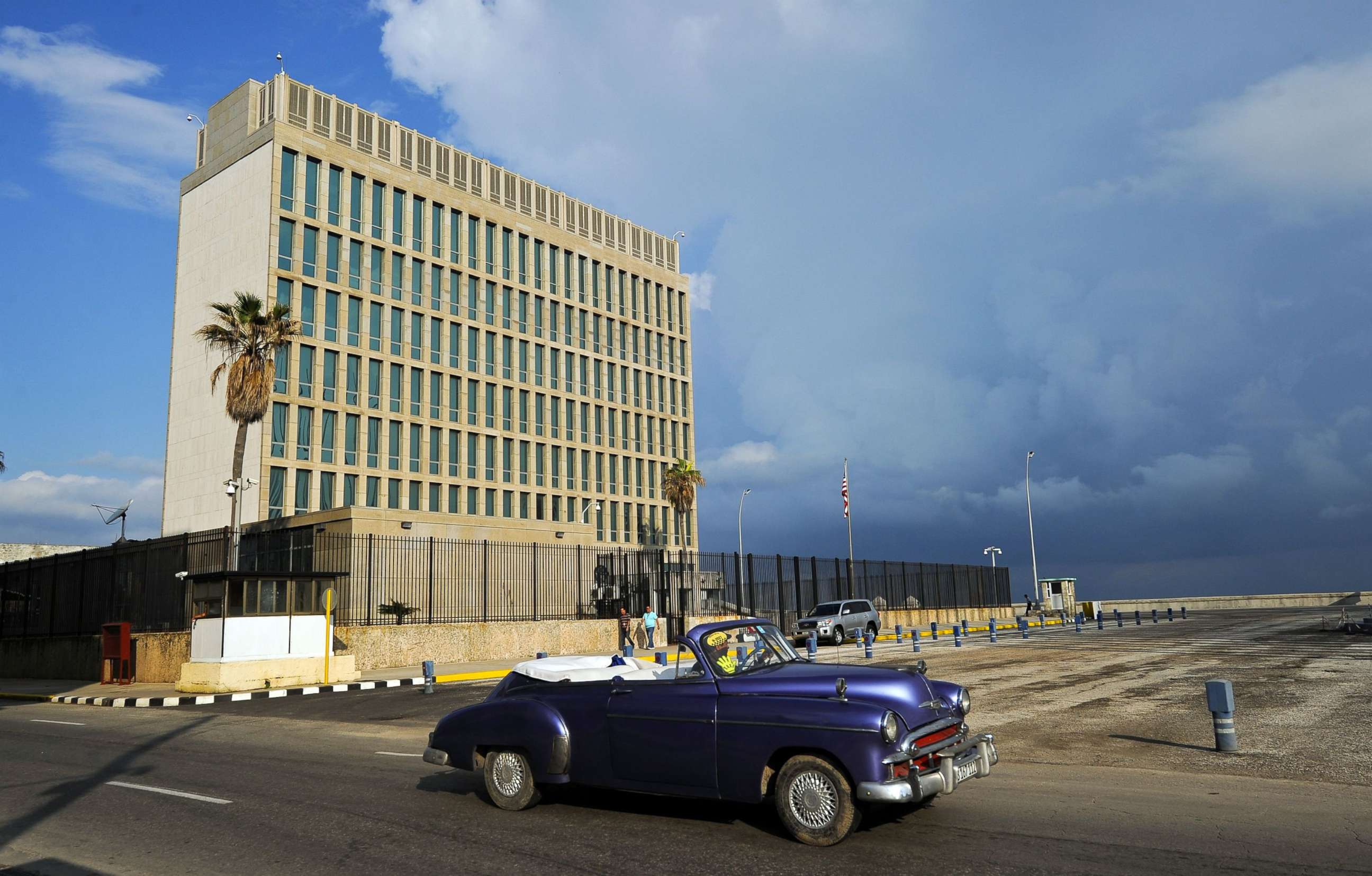US Embassy in Cuba makes staff cuts permanent after unexplained health 'attacks'
The U.S. Embassy in Cuba will operate with minimum essential personnel.
— -- The U.S. Embassy in Havana will make staff reductions permanent in the wake of still-unexplained health "attacks" that caused symptoms consistent with mild traumatic brain injury in at least 24 Americans, the State Department announced Friday.
Secretary of State Rex Tillerson ordered the departure of all non-essential personnel from the U.S. mission in Havana on Sept. 29th. Now, the embassy will permanently operate with the minimum personnel necessary to perform core diplomatic and consular functions.
The embassy will also operate as an unaccompanied post, meaning no family members of embassy staff will be permitted to reside there.
“The health, safety, and well-being of U.S. government personnel and family members are of the greatest concern for Secretary Tillerson and were a key factor in the decision to reduce the number of personnel assigned to Havana,” the State Department said in a statement.

The administration was forced to make a decision on staffing levels because the ordered departure expires Sunday, March 4.
What the State Department has described as "attacks" began as early as November 2016 and have affected 24 Americans. Their symptoms included sharp, localized ear pain, dull unilateral headache, ringing in one ear, vertigo, visual focusing issues, disorientation, nausea, and extreme fatigue, according to Dr. Charles Rosenfarb, Medical Director for the Bureau of Medical Services at the State Department.
The Cuban government has denied any involvement in the Americans’ symptoms and even rejected the idea that there have been attacks.
A report published by the Journal of the American Medical Association (JAMA) in February described symptoms consistent with “widespread brain network dysfunction” and “neurotrauma from a non-natural source.”
While for some, symptoms went away in days or weeks, other individuals reported persistent problems, including difficulty concentrating, recurring headaches, hearing loss, sleep disturbance, and imbalance while walking, Rosenfarb said.
According to the doctors' report in JAMA, 14 employees had not returned to work full-time because of persistent health problems at the time of the evaluation in August. The State Department has declined to provide any update on their situation.
The attacks initially appeared in “clusters,” but from late March to late April of 2017, occurred more sporadically before appearing to stop. Two additional incidents were reported in late August.
In response to the alleged attacks, the U.S. first approached Cuba in mid-February to demand protection for its staff. Cuba denied involvement and began its own investigation. In May 2016, after more incidents were reported, the U.S. expelled two Cuban diplomats, followed by nearly two-thirds of the Cuban embassy in October.
The U.S. government, including the FBI, continues to investigate who and what are behind the incidents, but with no firm answers so far.
"We still do not have definitive answers on the source or cause of the attacks, and an investigation into the attacks is ongoing," the State Department reiterated in its statement Friday.
The Associated Press has reported that an interim FBI report from the bureau's Operational Technology Division said its probe "has uncovered no evidence that sound waves could have damaged Americans' health."
But State Department officials told Congress in January they would not rule out "an acoustic element.”
"I'm not claiming that it's acoustic. I just know there's been an acoustic element associated with the sensations and the feelings," Brown told the committee. "Whether if the FBI has determined that is not the case -- which I have not seen this report, and I don't think it's been released publicly -- that doesn't mean an acoustic element couldn't be part of another type of style of attack here."
Brown said technical experts are looking at a "range of things" that could be associated with the alleged attacks, including "viral" and "ultrasound."
The JAMA report was skeptical of an audio attack, however, with one doctor saying, "We actually don't think it was the audible suond that was the problem. We think the audible sound was a consequence of the exposure, because audible sound is not known to cause brain injury."
But the doctors could not definitively point to a source or cause either.




